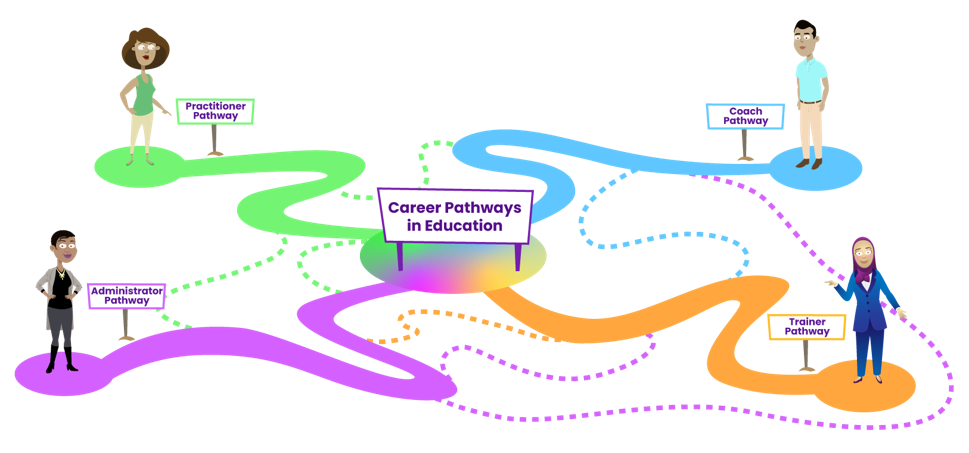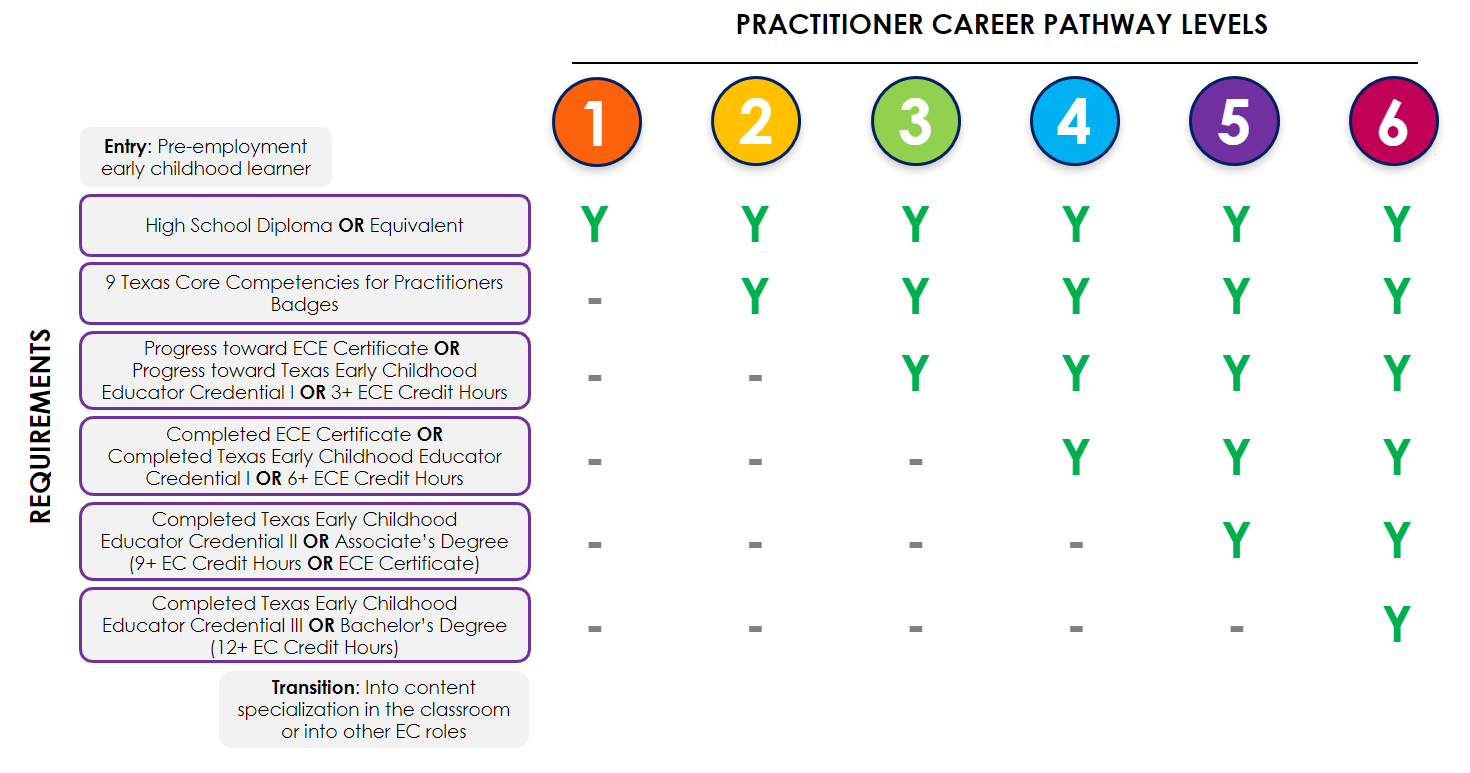The Texas Career Pathways define early childhood professionals’ levels of knowledge and identifies steps for advancing their careers.
Originally published in 2012, The Texas Early Learning Council developed the career pathway for early childhood professionals in Texas. The career pathway relates a professional’s training hours, education, work experience, and other factors to a position on the career pathway, from entry-level to expertise in the early childhood field.
Our updated Texas ECE Career Pathways support those who identify as Practitioners (those serving as classroom teachers or assistants), Administrators (those serving as multi-site leaders or directors), Trainers (those who provide professional development services) and Coaches (those serving in mentoring roles). See the information below to better understand which career pathway level is the best fit for you!

Check out the new Career Pathways!
Login to use the Find My Career Pathway Tool to see your new career pathway level: Find My Career Pathway ToolPractitioner Pathway
The Practitioner Pathway is designed for those serving in roles that directly support young children in early childhood education classrooms. Typically identified as classroom teachers, assistants, or paraprofessionals, these individuals provide direct care and instruction to children ages 0-8. There are many ways to advance levels in the Practitioner Pathway – from attending in and receiving a degree of higher education from an Associates or Bachelor’s program – to completing industry standard certifications such as the Child Development Associate (CDA) or a Registered Apprenticeship Program (RAP).

Administrator Pathway
Available in 2024, The Administrator Pathway is uniquely designed for those who serve in a role as directors, multi-site leaders, or other administrative personnel. This pathway is currently being developed to meet the needs of state licensing requirements and professional best practices when it comes to leading a team of early childhood educators.
Trainer Pathway
The Texas Trainer Registry offers an advancement pathway for those who specialize in delivering training to early childhood education professionals. Trainers may have a specific expertise in a specialized area such as literacy development, social emotional behaviors, or more. The Trainer Pathway allows those who deliver professional development to see how they can advance their own training skills and certificates.
Coach Pathway
The Coach Pathway is designed for early childhood specialists who serve as coaches or mentors to provide direct support to teachers, assistants, and administrators who support children. This pathway is currently being developed to allow coaches to advance in their practice as it will consider factors such as their number of years of experience, their education, and the number of competencies they have demonstrated.
